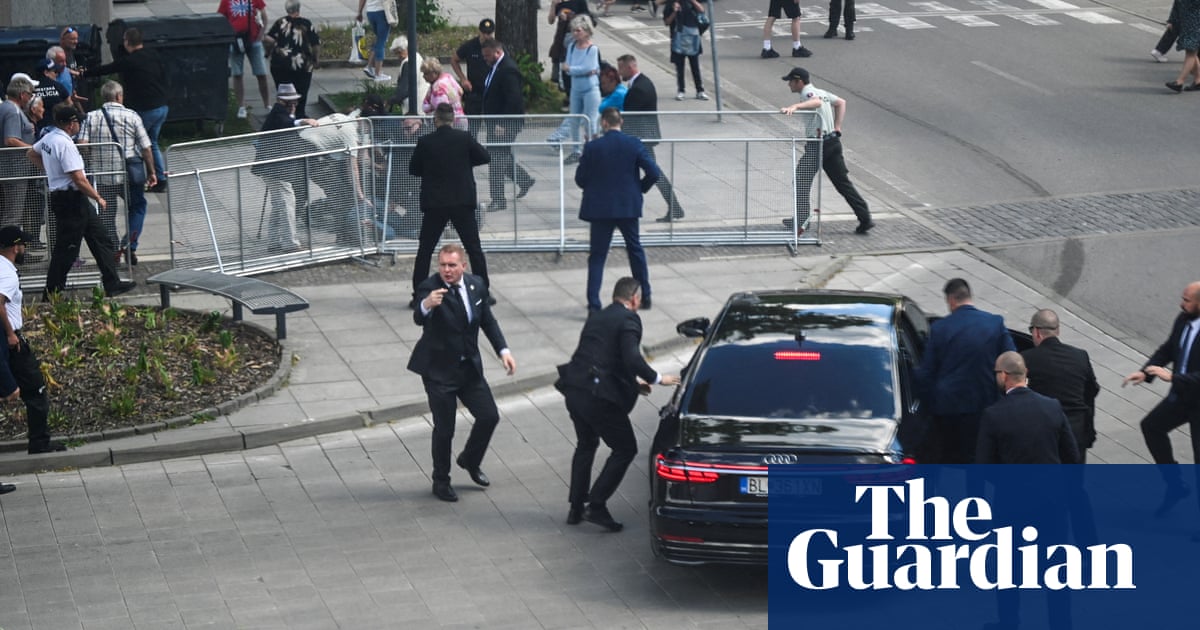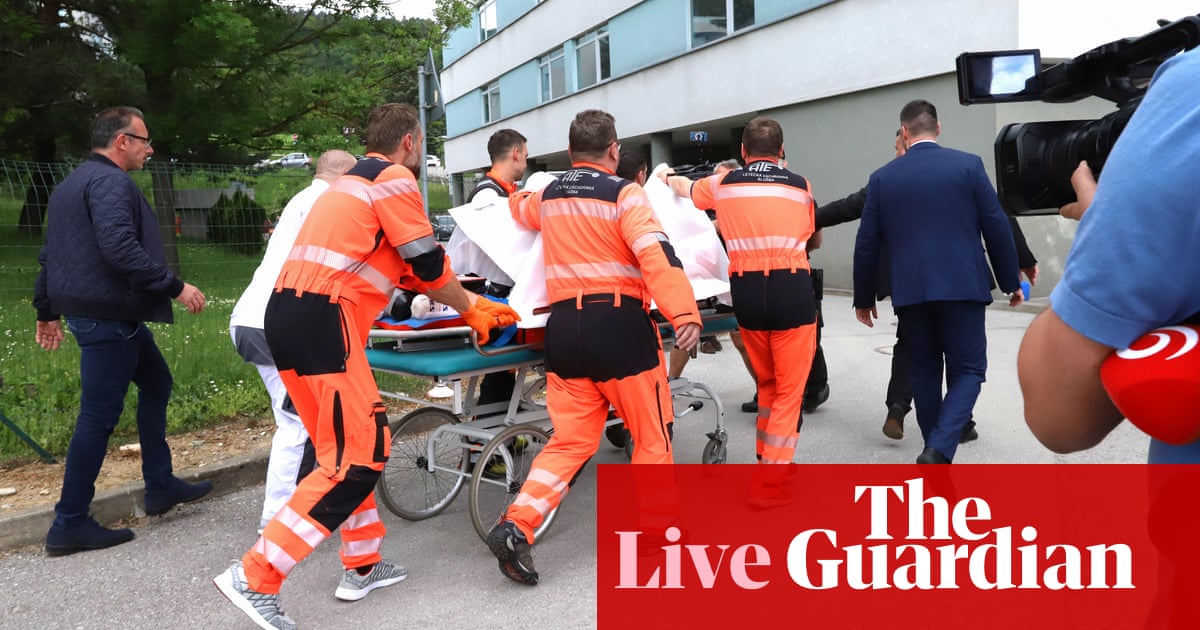
Slovakia’s populist former prime minister, Robert Fico, who campaigned on a pledge to end military aid to Ukraine, has said his position “has not changed” after his party’s clear election win made him favourite to lead the country for a fourth time.
Fico told reporters he was waiting for Slovakia’s president to give him a mandate to start forming a government – expected on Monday – after officials said on Sunday that Smer-SD had scored 22.9% in Saturday’s vote with 99.98% of ballots counted.
Fico said he was ready to open talks with other parties on forming a coalition government. “We’re here, we’re ready, we’ve learned something, we’re more experienced,” he said. “We have clear ideas; we have clear plans.”
The 59-year-old, whose pro-Moscow stance has sparked fears Slovakia will join Hungary and its authoritarian leader Viktor Orbán in challenging the EU’s consensus on support for Kyiv, added: “People in Slovakia have bigger problems than Ukraine.”
Fico has leaned close to Orbán, who congratulated him on his victory on Sunday. “Guess who’s back!” the Hungarian prime minister said on X, formerly known as Twitter. “Always good to work together with a patriot. Looking forward to it.”
Fico said his party was “not changing [its view] that we are prepared to help Ukraine in a humanitarian way … we are prepared to help with the reconstruction of the state. But you know our opinion on arming Ukraine.”
The liberal, pro-western Progressive Slovakia (PS) party finished second on just under 18%, with Hlas – a spin-off from Smer formed after Fico was forced to resign in 2018 amid mass popular protests following the murder of an investigative journalist and his fiancée – third on almost 15%.
With his party set up as kingmaker, Peter Pellegrini, the Hlas leader, who has previously said his party favoured Smer, said on Sunday the priority in negotiations would be a stable coalition and legislative agenda. Talks could last days or weeks, he said.
PS, which is liberal on environmental policies and LGBTQ+ and minority rights, and seeks deeper European integration, also suggested on Sunday it would approach Hlas. Its leader, Michal Šimečka, insisted he still saw a route to forming a ruling coalition.
“We believe that this is very bad news for Slovakia,” the 39-year-old European parliament vice-chair said of Smer’s victory. “And it would be even worse news if Robert Fico succeeds in forming a government.”
Analysts said Slovakia’s new ruling coalition would most likely be formed by Smer, Hlas and the nationalist, pro-Russian Slovak National Party (SNS), which would have a slim but functioning majority of 79 seats in the 150-seat parliament.
“If this transpires, a major assault on the rule of law is on the menu – Smer promised ‘vengeance’,” said Michal Ovádek, a European politics specialist at University College London. “We will have to wait a few days to find out whether it materialises.”
Milan Nič, of the German council on foreign relations, called Smer’s victory a “stunning political revival for a veteran populist who is still entangled in corruption cases”, adding that Pellegrini would likely be offered the job of parliamentary speaker.
The key task for the west would be “not to lose Slovakia”, Nič said on X. It would be vital to “engage constructively with Fico and manage cracks in support for Ukraine, as Hungary is no longer alone”.
Radoslav Štefančík, an analyst from the University of Economics in Bratislava, said: “It can’t be ruled out that Fico will be looking for a [European] partner who uses similar rhetoric - and that partner will be Viktor Orbán.”
Analysts have, however, said Fico, who was pragmatic during previous mandates, may cool his rhetoric in a coalition with Hlas, which has said ammunition supplies to Ukraine are good for Slovakia’s industry and backed the EU’s stance on the invasion.
Several experts noted that one of the election’s big surprises was the failure of the far-right Republika party, long seen as a potential Smer partner, to clear the 5% threshold for a seat in parliament, despite polling at between 7% and 10% for much of the year.
In total, seven parties and groups scored high enough to enter parliament, including the centrist, anti-corruption OLaNO coalition that won the previous elections in 2020, the centrist Christian Democrats, and the rightwing SaS.
President Zuzana Čaputová, a former member of Progressive Slovakia and a longtime political rival of Fico, said she would task him with forming a new government. “Tomorrow I will entrust the formation of the government to the winner of the election,” she said on Sunday.












